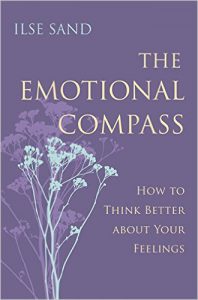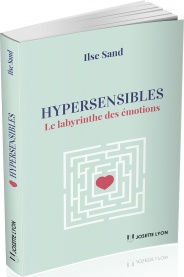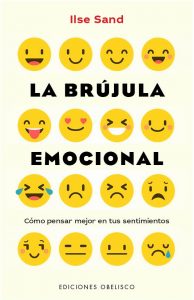The book is available in English, Russian, French, Romanian, Chinese, Spanish, Simplified Chinese, Korean, Dutch, Danish, Swedish, Turkish and Ukrainian.
 The English edition
The English edition
Publisher: Jessica Kingsley Publishers.
Title: The Emotional Compass: How to Think Better about Your Feelings.
September 2016
Buy the book
Read about the book on Jessica Kingsleys blog
 The French edition
The French edition
Title: Hypersensibles : Le Labyrinthe des Émotions
April 2018
Publisher: Guy Trédaniel.
Buy the Book
 The Spanish edition
The Spanish edition
Title: LA BRÚJULA EMOCIONAL
Publisher: Obelisco
Read more here
February 2018.
 The Taiwanese edition
The Taiwanese edition
Publisher : PING’S PUBLICATIONS, LTD. (Crown Culture Corporation)
March, 2019
Buy the book here
 The Ukrainian edition
The Ukrainian edition
Publisher: Family Leisure Club
Title: Компас емоцій. Як зрозуміти свої почуття
May 2019
Buy the book
 The Dutch edition
The Dutch edition
Publisher: Panta Rhei Publishers
June 2017
Title: “Wegwijs in het labyrint van je emoties
Over het accepteren en begrijpen van je emoties”
Buy the book
 The Korean Edition
The Korean Edition

Buy it here
July, 2017.
 The Russian edition
The Russian edition
November 2017
Buy it here
 The Swedish edition
The Swedish edition

Title: Hitta nya vägar i känslornas labyrint.
Publisher: Libris förlag 2013
Buy the book here
 The Danish edition
The Danish edition
Title: Find nye veje i følelsernes labyrint
(Finding New Paths in the Labyrinth of the Emotions)
Publisher: Forlaget Ammentorp
Buy the book
 The Chinese simplified edition
The Chinese simplified edition
Publisher: Beijing Bamboo stone cultural Broadcast co.
September 2020
Publisher: Editura ASCENDENT
April 2020
Buy the book
 Turkish edition
Turkish edition
Publisher: Sola Unitas Academy
October 2021
Buy the book
Recommendations of the “The Emotional Compass”
In an exemplarily clear and easy-to-read language without therapeutic clichés, Ilse Sand takes readers through a cleansing bath of emotional mental hygiene.
The book is very warmly recommended.
Bent Falk, psychotherapist MPF, M.Th.
The book is written as simple, straightforward advice in which complicated material is made easy to understand. The language is reader-friendly and accommodates our differences with great understanding.
Tidsskrift for Psykoterapi [Journal of Psychotherapy]
Ilse Sand guides you with simple advice and concrete exercises through the labyrinth of emotions, so you can learn to let go of old, unwelcome patterns and start working through these emotions – and, more to the point, achieve a greater acceptance and understanding for your feelings and the feelings of others.
Magasinet Psykologi [Psychology Magazine]
About The Emotional Compass: How to Think Better about Your Feelings
Emotions are not always what they seem to be. For example, if you see a woman who is crying you will probably think that she is sad. But she may also be scared or angry. The fact is that it is typical for women to conceal several different feelings while wearing a hat of ”sadness.”
And if you see a man who expresses anger you cannot be entirely sure that that is what he is in fact feeling, because it is typical for men to express anger, also when they are in reality scared, sad, depressed or experiencing a crisis. Sometimes we are not even sure ourselves what it is we are primarily feeling. The more you become aware of your exact feelings, the easier it is to take action.
This book is written for the sensitive person who would like to gain more knowledge about him or herself, also on an emotional level. It is equally written for psychotherapists, psychologists and other practitioners who help people with their emotional problems.
For many years I have listened to many peoples story, both as a pastor and later as a psychotherapist. I have often followed their joys and hardships in life at close range over a longer period of time.
It has often struck me how many of the problems derive from a lack of general knowledge about feelings. Some people are stuck in unhealthy patterns because they are trying to change something that can’t be altered while others weep over circumstances that could, in fact, be altered. There are people that find themselves caught in unnecessary conflicts due to inappropriate mental habits which can be rectified if they have the necessary knowledge to do so.
I have seen how people are capable finding their way once they have gained the necessary knowledge. With their increased knowledge of how the psychology of emotions work, they are able to find the excess energy they need to alter the things in their life that can be changed, and to let go of wanting to control the things they have no control over.
My intention with this book is to convey psychological connections in a language that is easily understandable and which refers back to real experiences. Once you know what you actually feel and why, finding your way in life will become much easier.











